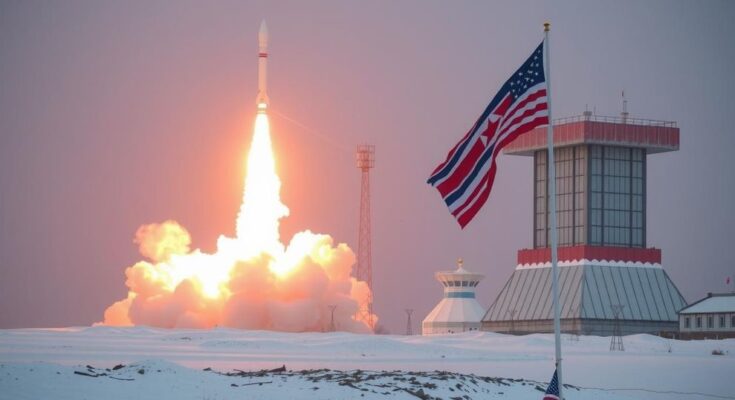North Korea launched a missile during Secretary Antony Blinken’s visit to South Korea, coinciding with heightened warnings about Pyongyang’s cooperation with Russia. Blinken discussed the implications of these developments, particularly regarding military technology exchanges, as well as the domestic political turmoil surrounding President Yoon Suk Yeol. The trip underscored the U.S. commitment to countering North Korea’s provocations and reinforcing trilateral ties with South Korea and Japan.
On Monday, amid tensions on the Korean Peninsula, North Korea launched a missile during U.S. Secretary of State Antony Blinken’s visit to South Korea. Blinken was there to underscore the importance of cooperation between South Korea and Japan while addressing the rising alliance between North Korea and Russia regarding advanced military technology. The missile, which reportedly traveled approximately 1,100 kilometers before landing in the sea, serves as a stark reminder of the ongoing threats posed by North Korea amid escalating geopolitical tensions.
In addition to discussing regional security, Blinken condemned Pyongyang’s missile test at a joint news conference with South Korea’s Foreign Minister Cho Tae-yul. He expressed concern that North Korea is receiving military aid and training from Russia, particularly in light of Moscow’s intentions to share space and satellite technology. Blinken emphasized that this cooperation could further legitimize North Korea’s nuclear status in global negotiations, undermining years of international efforts to contain its weapons programs.
Moreover, Blinken’s visit coincided with political turmoil in South Korea, where President Yoon Suk Yeol faces potential impeachment for a controversial attempt to impose martial law. Blinken’s diplomatic overtures included reaffirming U.S. support for South Korea’s democratic institutions, highlighting the importance of maintaining a united front against the North’s provocations. Amidst domestic protests over the president’s conduct, Blinken chose to avoid engaging in South Korea’s domestic politics and focused on strengthening the U.S.-South Korea alliance.
Looking ahead, Blinken assured that U.S. foreign policy towards North Korea would remain focused on denuclearization through diplomatic channels, contrasting the approach taken during the Trump administration, which was characterized by direct engagement with North Korean leader Kim Jong Un. As discussions continue about North Korea’s strategic capabilities and alliances, maintaining the trilateral collaboration between the U.S., South Korea, and Japan appears critical for regional security.
The article outlines escalating tensions in East Asia as North Korea continues its missile tests, coinciding with geopolitical shifts involving Russia. The U.S. Secretary of State’s visit highlights the ongoing concerns about North Korea’s nuclear ambitions and its collaboration with Russia amid conflict. It also emphasizes the volatile political landscape in South Korea, where President Yoon Suk Yeol is facing backlash over his governance and recent actions. Blinken’s trip aims to reinforce alliances and strategies against North Korea’s provocations while navigating complex domestic issues in South Korea.
In summary, North Korea’s recent missile test underscores the persistent threat it poses to regional stability, particularly as it strengthens ties with Russia. U.S. Secretary of State Antony Blinken’s visit to South Korea highlights the necessity for sustained collaboration among allies to counteract these threats and maintain a united front. Furthermore, the internal political challenges faced by President Yoon emphasize the complexities of governance in the context of international relations, necessitating careful navigation by U.S. diplomacy in the region.
Original Source: www.dawn.com




